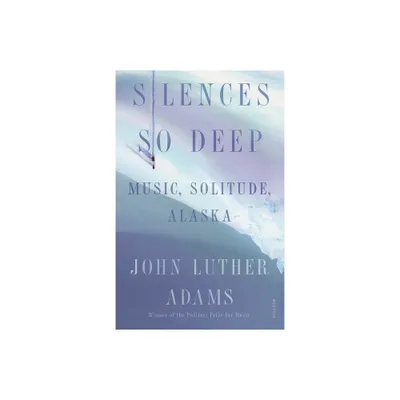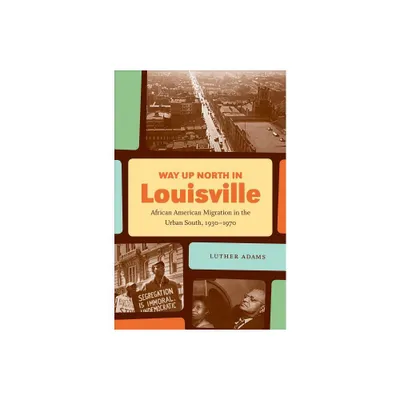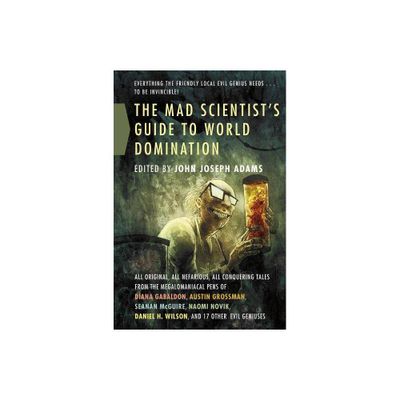Home
John Luther Adams: The Light that Fills the World
Loading Inventory...
Barnes and Noble
John Luther Adams: The Light that Fills the World
Current price: $18.99


Barnes and Noble
John Luther Adams: The Light that Fills the World
Current price: $18.99
Loading Inventory...
Size: OS
*Product Information may vary - to confirm product availability, pricing, and additional information please contact Barnes and Noble
The music of
John Luther Adams
is simply beautiful. It has a crystalline quality and a peaceful character that evoke the Arctic life, despite the cliche this assertion carries. Because of this beauty and the fact that
Adams
often includes
electronic
keyboards in his scores, he is often mistaken for a
new age
artist. This misconception is understandable, but nevertheless wrong. In these long, slow, engulfing pieces,
deploys more than a meditative state. The way he looks at stillness and the playing of light in his hometown of Fairbanks, Alaska, and how he translates his findings to music are informed by the works of composers like
Steve Reich
,
Philip Glass
, and
Morton Feldman
, among others. The three pieces presented on this disc share a similar form. They are made from a progression of slow chords where movement is expressed through the expansion and reduction of intervals.
The Farthest Place
(11 minutes) is the simplest piece, stretched over a pentatonic frame.
The Light That Fills the Void
(13 minutes) is diatonic, softly introducing dissonances. In the accompanying press release, the label
Cold Blue
claims these are premiere recordings, but there is at least one recording of this particular piece predating this one (it appeared on the compilation
Musicworks No. 82
, performed by
the Paul Dresher Ensemble
). That said, this version is better, mainly because the ominous spacy keyboard sound has been replaced by the piano.
The Immeasurable Space of Tones
(27 minutes) makes the expansion/reduction architecture more complex by introducing inner cycles. The performers on all three pieces are
Marty Walker
(bass clarinet),
Amy Knoles
(vibraphone/marimba),
Bryan Pezzone
(piano),
Nathaniel Reichman
(keyboard),
Robin Lorenz
(violin), and
Barry Newton
(double bass).
' music sounds like it has nothing to accomplish. It simply exists, hanging in midair, waiting to be listened to. ~ Francois Couture
John Luther Adams
is simply beautiful. It has a crystalline quality and a peaceful character that evoke the Arctic life, despite the cliche this assertion carries. Because of this beauty and the fact that
Adams
often includes
electronic
keyboards in his scores, he is often mistaken for a
new age
artist. This misconception is understandable, but nevertheless wrong. In these long, slow, engulfing pieces,
deploys more than a meditative state. The way he looks at stillness and the playing of light in his hometown of Fairbanks, Alaska, and how he translates his findings to music are informed by the works of composers like
Steve Reich
,
Philip Glass
, and
Morton Feldman
, among others. The three pieces presented on this disc share a similar form. They are made from a progression of slow chords where movement is expressed through the expansion and reduction of intervals.
The Farthest Place
(11 minutes) is the simplest piece, stretched over a pentatonic frame.
The Light That Fills the Void
(13 minutes) is diatonic, softly introducing dissonances. In the accompanying press release, the label
Cold Blue
claims these are premiere recordings, but there is at least one recording of this particular piece predating this one (it appeared on the compilation
Musicworks No. 82
, performed by
the Paul Dresher Ensemble
). That said, this version is better, mainly because the ominous spacy keyboard sound has been replaced by the piano.
The Immeasurable Space of Tones
(27 minutes) makes the expansion/reduction architecture more complex by introducing inner cycles. The performers on all three pieces are
Marty Walker
(bass clarinet),
Amy Knoles
(vibraphone/marimba),
Bryan Pezzone
(piano),
Nathaniel Reichman
(keyboard),
Robin Lorenz
(violin), and
Barry Newton
(double bass).
' music sounds like it has nothing to accomplish. It simply exists, hanging in midair, waiting to be listened to. ~ Francois Couture


















